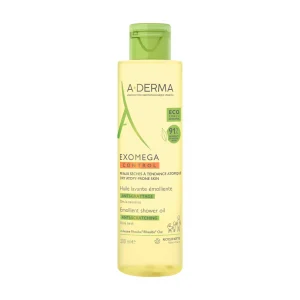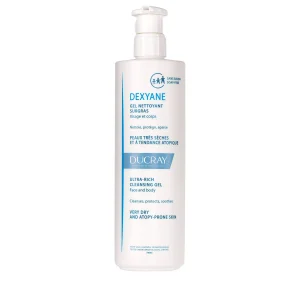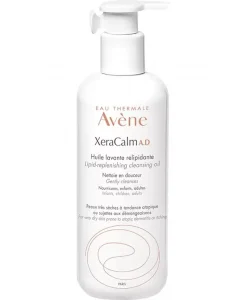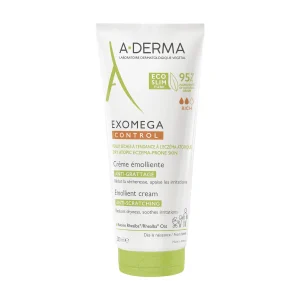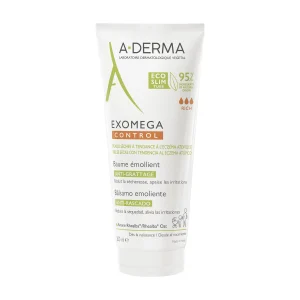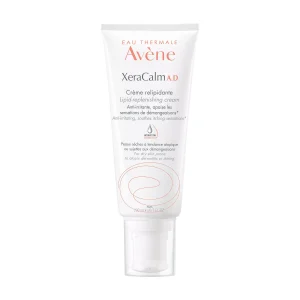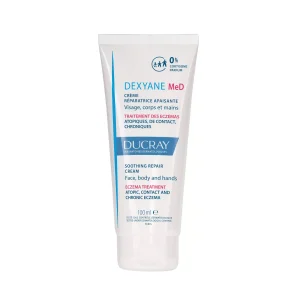
Are you tired of looking like a reptile shedding its skin? Are you sick of leaving a trail of flakes everywhere you go? Well, it’s time to say goodbye to your lizard-like ways and hello to smooth, clear, eczema-free skin! With the right skin care routine, you can finally stop feeling like you’re in a constant state of molting and start feeling like the glowing, confident human you truly are. So, put down the lotion, step away from the scratchy sweater, and read this article in collaboration with the dermatologist Dr. Mohammed Tayeh, because it’s time to get serious about your skin!
How does eczema appear and how does it manifest itself on your skin?
First, let’s talk about the causes of eczema. The short answer is, we don’t really know. There are a lot of theories out there, ranging from genetics to environmental triggers, but no one knows for sure why some people are more prone to eczema than others. So, if you’re feeling a little insecure about having this annoying condition, just remember that even scientists are scratching their heads about it.
One thing we do know for sure is that eczema is not contagious. So, if your well-meaning friend tries to avoid you like the plague, just tell them to chill out.
Now, let’s talk about the symptoms. If you have eczema, you’re probably too familiar with the itchiness that seems to come out of nowhere. It’s like your skin is playing a game of “now you see me, now you don’t” with your brain, and it always wins. No matter how much you scratch, the itch just keeps coming back like an unwelcome houseguest. But don’t give in to the temptation to scratch! Scratching the affected area can cause the skin to become even more inflamed, leading to a vicious cycle of itching and scratching.
Other symptoms of eczema include:
- Dry, itchy, flaky skin
- Redness and inflammation
- Cracks in the skin
- Blisters or oozing lesions
- Thickened, rough skin
- Dark, rough patches
What are some tips for coping with eczema?
Discover some of the most effective ways to treat eczema and keep your skin looking and feeling its best.
1- Use a gentle cleanser
For people with eczema, it’s important to use gentle cleansers that don’t further irritate or dry out the skin. Using harsh or scented soaps can exacerbate eczema symptoms and cause additional skin irritation. That’s why it’s generally recommended to use hypoallergenic cleansers that are specially formulated for sensitive skin. Dr. Mohammed Tayeh recommends cleansing the face 2 to 3 times a day.
When choosing a cleanser for eczema-prone skin, it is important to look for products that are free of fragrances, dyes, and other potential irritants. Gentle, soap-free cleansers or emollient cleansers are often a good choice, as they help cleanse the skin without stripping it of its natural oils.
We recommend the following cleansers for eczema-prone skin:
A-Derma Exomega Control Emollient Shower Oil
Ducray Dexyane Ultra-Rich Cleansing Gel
Eau Thermale Avène XeraCalm A.D Lipid-Replenishing Cleansing Oil
2- Moisturize, moisturize, moisturize
One of the most important things you can do to treat eczema is to keep your skin moisturized. Eczema-prone skin is often dry and itchy, so using a moisturizer can help soothe your skin and reduce inflammation. Look for a moisturizer that is specifically formulated for eczema, as these are often richer and more emollient than regular moisturizers. Apply moisturizer twice a day, especially after showering or bathing, to lock in moisture and keep your skin hydrated.
Each of our products is fragrance-free and contains restorative ingredients that help heal, soothe, and calm the skin. Check them out!
A-Derma Exomega Control Emollient Cream
A-Derma Exomega Control Emollient Balm
Ducray Dexyane Anti-Scratching Emollient Cream
Eau Thermale Avène XeraCalm A.D Lipid-Replenishing Cream
3- Avoid triggers
Eczema can be triggered by a variety of factors, including certain foods, soaps, and detergents. Try to identify your triggers and avoid them as much as possible. Dr. Mohammed Tayeh states that any food can trigger atopic dermatitis, but the most commonly reported foods are milk, yogurt, fish, egg, banana, chocolate, nuts, and certain fruits like strawberries and apricot.
You may also find that certain fabrics or clothing irritate your skin, so it’s important to wear soft, breathable fabrics like cotton or bamboo. Also, avoid harsh soaps and detergents as they can dry out your skin and make eczema worse.
The key is to pay attention to your body and keep a record of the things that seem to make your eczema worse. Then, do your best to avoid those triggers.
4- Treat eczema lesions
Since eczema damages the skin barrier, it leaves the skin open to bacterial infection. Dexyane MeD soothing repair cream treats and promotes the disappearance of eczema lesions, limiting their reappearance. The skin is protected thanks to a pleasant texture which forms a semi-occlusive surface film.
Results:
- Relieves itching and reduces the intensity of signs of inflammation.
- Major improvement in clinical signs after 3 days.
Ducray Dexyane MeD Soothing Repair Cream
5- Use prescription medication
Dr. Mohammed Tayeh indicates that you can use prescribed medications in case of flare-ups.
Topical corticosteroids are commonly used to reduce inflammation and itching, while immunomodulators can help suppress your immune system to reduce inflammation. If you have an infection, your doctor may prescribe antibiotics to help clear it up.
6- Reduce your stress
Reducing stress can help relieve eczema symptoms in some people. Stress is a common trigger for eczema flare-ups, and reducing stress levels may help prevent or reduce the severity of symptoms. When you experience stress, your body produces cortisol, a hormone that can increase inflammation and exacerbate eczema symptoms. By reducing stress, you can help lower cortisol levels and reduce inflammation, which may help relieve eczema symptoms.
Some stress-reducing activities that may help with eczema symptoms include:
- Meditation and deep breathing exercises
- Yoga or other forms of exercise
- Getting enough sleep and practicing good sleep hygiene
- Spending time in nature or engaging in other relaxing activities
What are the dos and don’ts of eczema?
Do’s:
- Moisturize your skin regularly to keep it hydrated.
- Use fragrance-free, gentle, hypoallergenic skin care products.
- Wear loose, breathable clothing made of soft fabrics such as cotton or bamboo.
- Use lukewarm water and avoid hot water while showering or bathing.
- Try to identify and avoid triggers that may worsen your eczema.
- Use cool compresses to relieve itchiness and inflammation.
- See a doctor or a dermatologist if your symptoms are severe, persistent, or not responding to over-the-counter treatments.
Don’ts:
- Use harsh soaps, detergents, or fragrances on your skin.
- Scratch or rub the affected area, as it can lead to skin damage, infection, and scarring.
- Use abrasive skin exfoliants or scrubs.
- Ignore symptoms like oozing, bleeding, or severe itching, as they may indicate an infection or a more serious condition.
- Delay seeking medical attention if your eczema is causing significant discomfort or affecting your quality of life.
By following these do’s and don’ts, you can help manage your eczema and reduce your symptoms. Remember to be patient and consistent with your skin care routine, and consult your doctor if you have any questions or concerns.
To put it briefly
In conclusion, eczema is a real bummer. But with a little humor and a lot of patience, you can learn to manage it. By working with a healthcare professional and taking steps to manage triggers, moisturize the skin, and reduce stress, individuals with eczema can lead full and active lives. And if all else fails, just remember that you’re not alone. We’re all in this itchy, scratchy, scaly boat together. Bon voyage!

